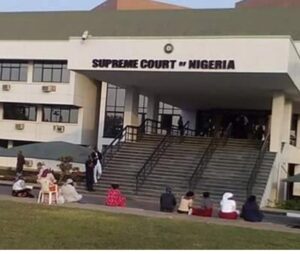

By correspondent.

Photo credit: Daily Post.
The Supreme Court has ruled to grant financial autonomy to Nigeria’s 774 local government councils.
In a significant decision, the apex court mandated the Federal Government to immediately initiate direct payments of local government funds into the councils’ exclusive accounts.
Justice Emmanuel Agim, delivering the lead judgement, criticized the prolonged resistance of state governments towards granting financial independence to local governments.
He emphasized that the councils must now manage their funds independently.
The court dismissed objections raised by state governors and directed that allocations from the Federation Account be paid directly to local governments, not through state coffers.
Justice Agim said that state governors withholding these funds hampers local government operations.
He mandated immediate compliance with the judgement, stipulating that no state government should receive funds meant for local governments.
There are 774 local government areas in Nigeria, but their effectiveness has often been hindered by governors accused of mismanaging their funds.
Recent months have seen growing calls for local government autonomy, supported by figures such as President Bola Tinubu.
In May, the Attorney-General of the Federation, Lateef Fagbemi, filed a lawsuit against all 36 state governors, alleging misconduct regarding local government finances.
Currently, revenue distribution stands at 52.68% for the Federal Government, 26.72% for states, and 20.60% for local governments, managed by the Revenue Mobilisation Allocation and Fiscal Commission and disbursed by the Federation Account Allocation Committee.
Notably, local government funds have traditionally been paid into joint accounts with state governments.
The Federal Government’s lawsuit sought to prevent governors from arbitrarily dissolving democratically elected councils and included 27 grounds.
The governors contested the AGF’s right to file the case, but Justice Agim affirmed the AGF’s authority to protect the constitution.
This ruling marks a pivotal moment in Nigeria’s governance structure, aiming to strengthen the autonomy and operational capacity of local governments across the country.
Some of the staff of Lokoja Local Government Area of kogi state,who spoke to our correspondent on the judgment,sighed a relief.
They described the supreme Court verdict on the issue as not only landmark, but also historic and expressed optimism that it would free them from financial bondage that has subjected them to “borrowing and sorrowing for many years.”
Edited by Dada Ahmed.


